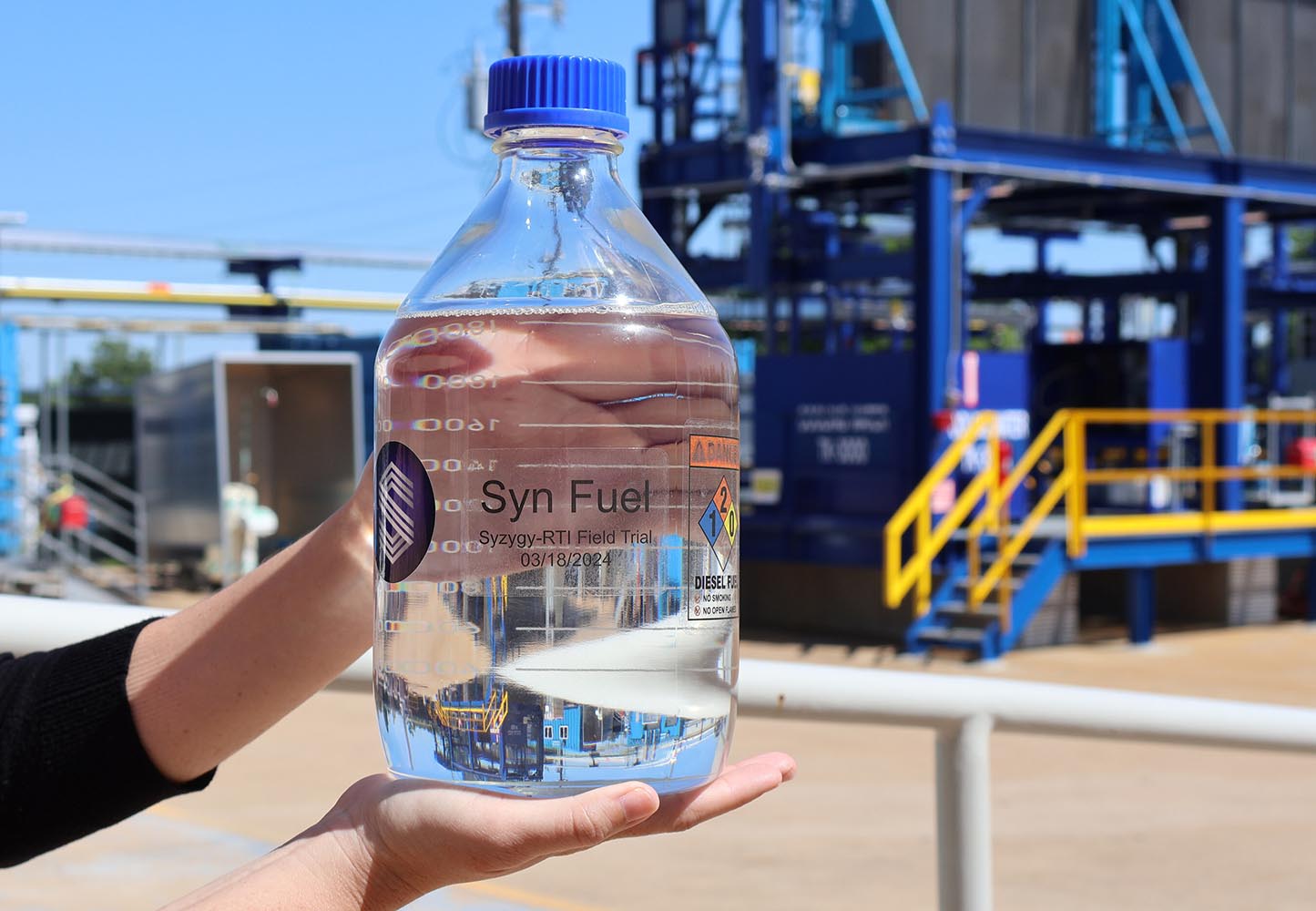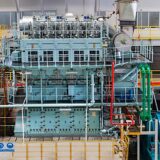
Syzygy Plasmonics unveils CO2-to-fuel technology with RTI
Syzygy Plasmonics, in collaboration with the nonprofit research institute RTI International, has announced a successful demonstration of an all-electric CO2-to-fuel production pathway. This groundbreaking technology, showcased at RTI’s facility in Research Triangle Park, North Carolina, U.S.A., has the potential to significantly reduce transportation-related carbon emissions by converting carbon dioxide (CO2) and methane (CH4) into low-carbon fuels.
The innovative process developed by Syzygy Plasmonics and RTI International addresses two potent greenhouse gases, CO2 and CH4, transforming them into sustainable fuels that can help lower the carbon footprint of traditional fossil-based fuels such as jet fuel, diesel, and gasoline. The pilot project, supported by Equinor Ventures and Sumitomo Corporation of Americas (SCOA), marks a significant milestone in the journey towards decarbonising the transportation sector.
Project highlights
The technology demonstrated in the pilot project leverages an all-electric approach, which is crucial for achieving low-carbon fuel production. By integrating advanced plasmonic catalysts, Syzygy Plasmonics’ solution operates efficiently under mild conditions, offering a scalable and sustainable alternative to conventional fuel production methods.
“This project showcases our ability to fight climate change by converting harmful greenhouse gases into fuel,” said Syzygy CEO Trevor Best. “Our light-driven reactors produce valuable syngas at a ratio that is ideal for feeding Fischer-Tropsch units to produce SAF. Syzygy syngas can also be used to produce diesel, gasoline, and methanol. At scale, we’re talking about significantly reducing and potentially eliminating the carbon intensity of shipping, trucking, and aviation. This is a major step toward quickly and cost effectively cutting emissions from the heavy-duty transport sector.”
Industry impact and future prospects
The ability to convert greenhouse gases into usable fuels presents a promising avenue for reducing emissions in the transportation sector. This innovative pathway not only addresses environmental concerns but also provides a viable solution for industries seeking to meet stringent emissions regulations.
“The collaboration with Syzygy Plasmonics on this project underscores our commitment to advancing technologies that can mitigate climate change,” said Dr. Jeffery Zonnefeld, Senior Director at RTI International. “We are excited about the potential applications of this technology and its role in supporting a sustainable energy future.”
“The results of this demonstration are encouraging and represent an important milestone in our collaboration with Syzygy,” said Sameer Parvathikar, Ph.D., director of renewable energy and energy storage at RTI. “We are pleased to have played an impactful role in shaping this promising technology.”
As the project moves forward, Syzygy Plasmonics and RTI International plan to continue refining the technology, with the goal of scaling up production and exploring commercial applications. This development aligns with global efforts to transition to cleaner energy sources and reduce reliance on fossil fuels.














